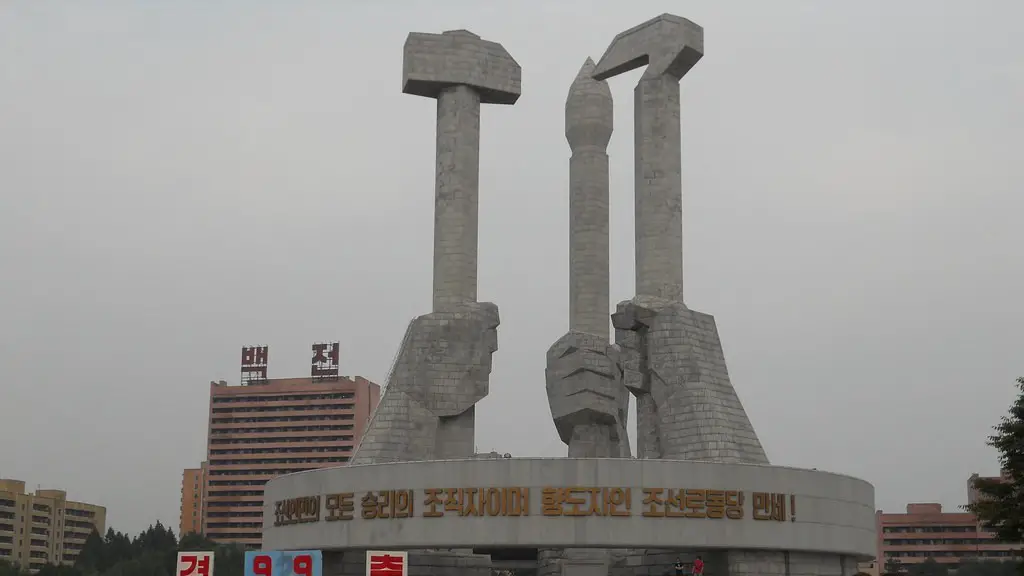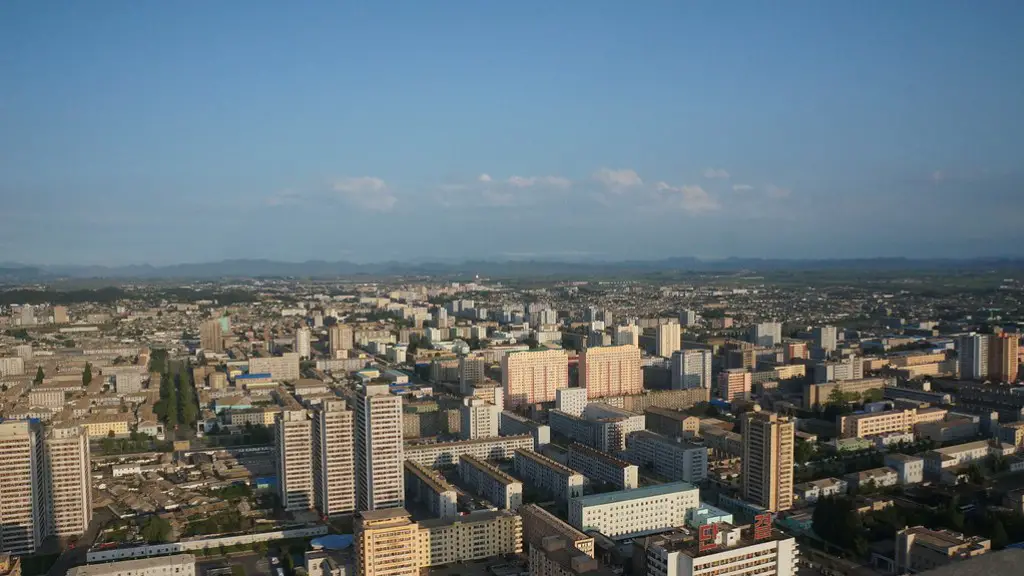1. The Risks of War with North Korea
North Korea has been a topic of great contention since the country’s leaders declared themselves a nuclear superpower to the world in 2006. The tension has been increasingly mounting ever since, between North Korea and the West, causing many experts to ask the pressing question: will we have war with North Korea?
The threat of war with North Korea is ever present and unpredictable, despite the diplomatic efforts of both parties. The potential consequences of such a conflict are nothing short of dire. The situation is complicated by North Korea’s unreliable nature and lack of adherence to international arms regulations – and the country continues to develop its nuclear capabilities unhindered.
It is difficult to say how such a war would play out. If the West had to go to war with North Korea, it is possible that the conflict will quickly escalate – leading to potentially disastrous consequences. These could range from severe economic damage due to the disruption of trade, to the deployment of nuclear weapons.
It is for these reasons that many experts have advocated for diplomatic solutions to the crisis, as it is the least destructive and unpredictable solution.
2. The Precedent set by Other Nuclear Interventions
The nuclear threat from North Korea is not the first of its kind in modern history. In past decades, nuclear interventions have been attempted by other countries – with mixed results.
Perhaps the most prominent example is that of the United States and its efforts to intervene in Iran. This intervention was sparked by Iran’s nuclear ambitions, and the US acted in the hopes of preventing the country from producing nuclear weapons.
The results of this intervention were, however, not at all what the US had expected. Not only did the intervention fail to halt the production of nuclear weapons in Iran, but it also inadvertently exacerbating existing tensions in the region. This further adds to the arguments against military action as a solution to the North Korean crisis.
3. Potential Alternatives to War
There are countless alternatives to war for the current crisis in North Korea. It is possible that economic sanctions could be put in place, in order to limit the country’s access to the resources necessary for its nuclear arms development. However, such sanctions would potentially cause immense suffering for the people of North Korea – so it must be weighed against the alternative of engaging in war.
Another option is to open up negotiations and diplomatic talks with North Korea. This could be an avenue for developing mutual trust between the two parties, and could potentially lead to a solution that is acceptable to both.
Many experts also suggest that the West should adopt a policy of appeasement towards North Korea. This could be done by supplying food and other forms of aid to North Korea, in order to maintain the peace.
4. North Korea’s Need for Security
It is important to understand why North Korea has taken such a strong stance in its current dispute with the West. The country has felt increasingly under threat, due to the rhetoric of other countries in the region – especially South Korea, which has often been hostile towards North Korea.
The current nuclear crisis can to some extent be seen as an attempt by North Korea to secure its own security, by developing the weapons necessary to protect itself from any aggression. This is why it is imperative that the West respects North Korea’s need for security, if it is to avoid confrontation.
5. The Role of China
China has a major role to play in the current standoff. The country has long been a major ally of North Korea, and continues to defend the country’s interests in the international arena.
China has used its own diplomatic prowess to protect North Korea from any potential military action, and has often even served as a mediator in disputes between North Korea and the West.
China’s influence is such that it could potentially be used to sway North Korea’s decisions, and even open up the possibility of diplomatic negotiations – making it an invaluable ally in the current crisis.
6. Potential Negotiations with North Korea
There is a potential path to peaceful negotiations between the West and North Korea. The first step would be to ease existing tensions. This could be achieved through a reciprocal agreement, in which both sides agree to refrain from any aggressive and hostile acts.
The next step would involve increasing dialogue between the two parties and initiating negotiations. These talks would focus on finding a solution to the crisis which is mutually beneficial for both sides.
The West must be willing to make concessions in order for a deal to be possible. This could involve granting North Korea economic aid, or even granting the country diplomatic recognition.
It is important to ensure that any negotiations are carried out in a peaceful and diplomatic manner – as it is the only way to de-escalate the current crisis.
7. The Impact of US Elections
The upcoming US election cycle could potentially have an immense impact on North Korea, as the next US President could potentially alter the US’s approach to the crisis.
The current US administration has taken a confrontational stance towards North Korea, which has only added to the tension and the potential for war. It is possible that a different, more diplomatic, approach could be taken – leading to a resolution of the crisis.
It is, however, unclear which approach the next US President might take. It is only through the election process that we will discover the true extent of a potential US response.
8. Diminishing Chances of War
The reality is that it is increasingly unlikely that a war between North Korea and the West will occur. This is because war would be immensely costly, not only in terms of lives, but also in terms of the potential damages to infrastructure, trade, and resources.
The current crisis has, however, made some countries more so that before, leading to fears of a potential conflict. It is only through diplomatic channels and peaceful negotiations that this crisis can be resolved without violence – and it is now more important than ever that these initiatives are pursued.
9. North Korea’s Enduring Power
It is no secret that North Korea has endured immense hardships throughout its history; yet the country has still managed to persist. This is a testament to the strength of the nation and its people.
Despite its current difficulties, it seems improbable that the nation will be reduced to ashes by a military intervention from the West. North Korea has withstood international sanctions, poverty and disease, and it is likely that its resilience will ensure it survives for many more years to come.
The current state of affairs is nonetheless unacceptable, and it is imperative that a peaceful resolution is found.
10. The Lasting Consequences of War
Even if a war between North Korea and the West is avoided, it is still important to consider the potential consequences of such a conflict.
The first, and perhaps the most pressing, is the damage to the environment. War is an immensely destructive force, capable of devastating the environment. This could potentially cause immense suffering, in the form of deadly pollution, mass evacuations, and famine.
The effects on both sides would be far reaching, as the economic and psychological damage could take many years to repair.
The popular opinion is that war should never be the answer, as its consequences are dire and its outcomes unpredictable. It is, however, important to consider all the possible options before committing to a course of action, in order to ensure that the optimal solution is found.


